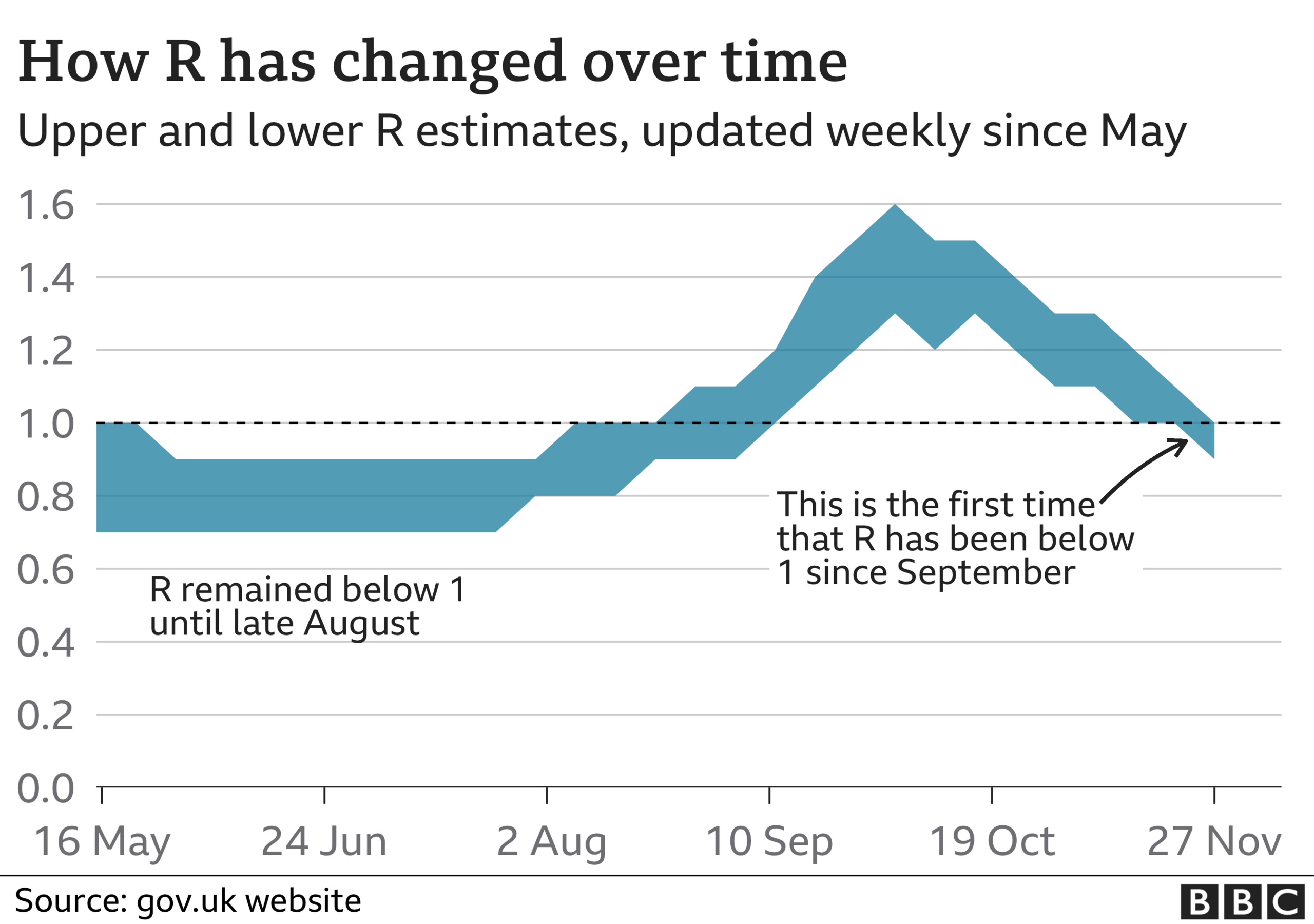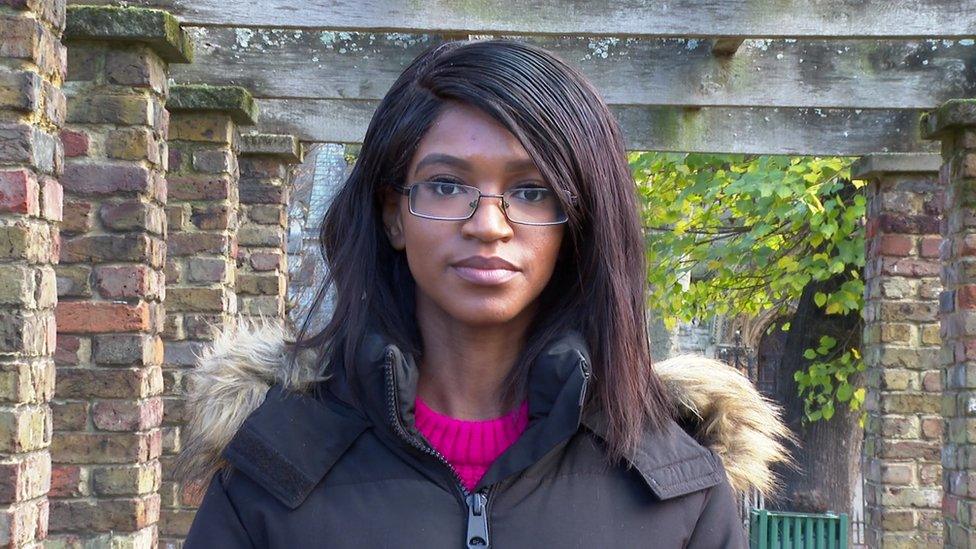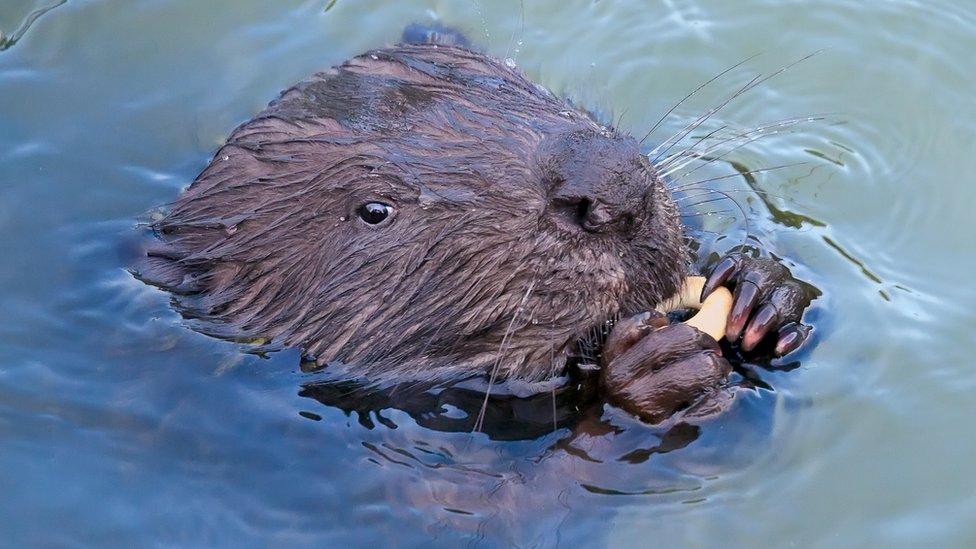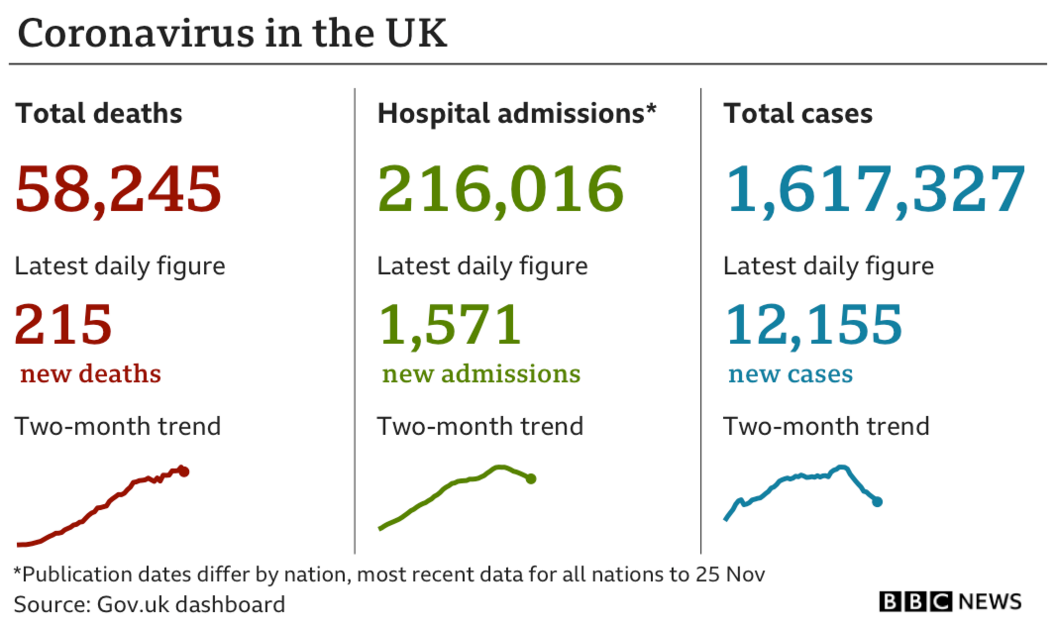Covid-19: Lockdown impact, tiers rebellion and student testing
- Published
Here are five things you need to know about the coronavirus pandemic this Monday morning. We'll have another update for you at 18:00 GMT.
1. Study sheds light on lockdown's impact
Coronavirus cases in England fell by almost a third in two weeks after the current lockdown was introduced. That's the conclusion of React-1,, external a highly-respected study by Imperial College London, which swabbed more than 100,000 people between 13 and 24 November. Some of the worst-hit areas in the North saw the biggest improvements, and the R rate fell to 0.88 - here's a reminder of why that matters so much. Overall, though, cases across the country remain high, with the East and West Midlands the current hotspots. Health Secretary Matt Hancock says we can't "take our foot off the pedal just yet".

R was last below 1 on the 14 August

2. PM tries to limit tiers rebellion
Boris Johnson insists the tougher three-tier system, coming into force on Wednesday, is what's needed to keep cases falling, but dozens of his MPs remain to be convinced. To that end, he's agreed to publish the social, economic and health impact assessment of the measures, and is urging sceptics to show "unity and resolve". The PM hopes to limit the numbers who rebel when the measures are put to a vote tomorrow. Our political correspondent Iain Watson says it would be embarrassing for the PM to have to rely on opposition votes. Check the latest virus rules wherever you are in the UK.
Laura Foster explains the new three tier system for England

3. Students testing begins
The mass Covid testing of students is starting at many universities across the UK today, aimed at allowing them to go home safely for Christmas. Universities are opening temporary testing centres and students have been asked to take two tests, three days apart. If they get a negative result, many will leave in the "travel window" starting from 3 December. Many will continue their studies remotely - learn more about the tech allowing them to sit exams at home.


4. Benefit boost 'should be extended'
Nearly 700,000 more people have fallen into poverty due to the pandemic, according to right-leaning think tank the Legatum Institute. But it says the figure would be twice that if it wasn't for a £20 uplift to universal credit introduced to help those struggling to cope. It's urging the government to keep the extra payment as long as it's needed. So far ministers have confirmed the uplift will be secure until March. People who've lost their jobs are among the worst hit - see just how bad the unemployment picture could get.

Simone is one of hundreds of thousands struggling to find work

5. Beavers get a boost
It's fair to say it's been a tough year, but beavers - and their human supporters - have cause to celebrate. The rodents became extinct in the UK in the 16th Century due to hunting, but have been successfully reintroduced at a handful of sites in recent years. Today we've learned that one group has built a dam on Exmoor for the first time in more than 400 years. Read more about why 2020 has been good for beavers - but also why not everyone is a fan.

The Eurasian beaver used to be native to England but was hunted to extinction about 400 years ago


And don't forget...
Find more information, advice and guides on our coronavirus page.
Plus, as the newspapers report plans to enlist "sensible" celebrities to promote coronavirus vaccination, we look at five challenges the global roll-out will need to overcome.


What questions do you have about coronavirus?
In some cases, your question will be published, displaying your name, age and location as you provide it, unless you state otherwise. Your contact details will never be published. Please ensure you have read our terms & conditions and privacy policy.
Use this form to ask your question:
If you are reading this page and can't see the form you will need to visit the mobile version of the BBC website to submit your question or send them via email to YourQuestions@bbc.co.uk, external. Please include your name, age and location with any question you send in.

LACKING MOTIVATION?: 6 hours of dance hits to help you stay energised all day long
THE NAKED SCIENTISTS: Why are people catching coronavirus on purpose?
